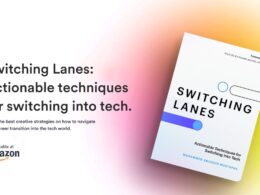According to a survey by Gartner, 58% of Software Engineering Leaders report that developer experience is critical to an organisation’s C-Suite. The senior research principal at Gartner, Philip Walsh, firmly believed that organisations are recognising that a high-quality developer experience improves productivity and is critical to attracting and retaining software engineering talent.
Developer advocacy plays a pivotal role in driving startup developers’ experience and growth. With solid developer communities, excellent documentation and support, and facilitating developer engagement, startups can create a positive environment that attracts and retains top talent, accelerates product development, and drives business success. For example, Synk empowered their developers to provide valuable feedback and take ownership of their security infrastructure. This decentralised approach allowed developers to identify and eliminate inefficiencies in existing security practices, ultimately boosting productivity. Through this developer-centric approach, Synk achieved an impressive 100% year-over-year revenue increase.
Understanding Developer Advocacy
Appsembler defines developer advocacy as being the bridge between a company and its developer community. It’s the process of understanding what developers need and helping them by sharing resources, tools, and information that make it easier for them to use a company’s products or services. A developer advocate ensures that developers not only know about a product but also know how to use it effectively. The primary role of a developer advocate is to support and engage with developers in various ways. This can range from writing technical content, speaking at events, or creating tutorials and demos. They also act as a voice for the developer community, sharing feedback with internal teams to improve products and services. In addition, they often help build and foster a sense of community by organising meetups, webinars, and other developer-focused events. Another important aspect of their job is collaborating with marketing, product, and engineering teams to ensure that the developer’s perspective is always considered.
For startups, developer advocacy is crucial. Startups often need to build a loyal user base quickly, and having a developer advocate helps make their product more accessible and appealing to the developer community. It can also nurture organic growth, as developers who have positive experiences with a product are likely to recommend it to others. Additionally, developer advocates can gather early feedback, helping startups improve their offerings and stand out in competitive markets.
How Developer Advocacy Drives Developer Experience
Cassidy Williams, Senior Director of Developer Advocacy at GitHub, the head of Developer Experience and Education at Remote, a prominent startup advisor, and a leading advocate for women in STEM, describes the relationship between developer advocacy and developer experience with this statement: “Developer advocacy is the best user research you can get. It’s the best way to build relationships with developers who may be making product decisions or talking to their manager.” This perfectly captures the role of developer advocacy in improving the overall experience for developers.
One of the key ways developer advocacy strengthens developer experience is by creating strong, supportive communities around a product or service. When developers feel part of a larger group, they’re more likely to share ideas, provide feedback, and help each other out. Developer advocates play a vital role in grooming these communities by organising events, hosting discussions, and facilitating interactions between developers. This sense of belonging encourages developers to stay engaged and form long-lasting relationships with a startup’s products.
Great documentation is essential for a positive developer experience, and developer advocates ensure it’s accessible and easy to understand. They work closely with teams to create clear, comprehensive guides that help developers get the most out of a product. Beyond documentation, advocates also provide direct support, often acting as the first point of contact when developers encounter issues. This quick and helpful assistance reduces frustration and keeps developers on track.
Developer advocates also play a big role in encouraging active engagement from the developer community. They do this by creating opportunities for developers to share feedback, ask questions, and contribute to discussions. Whether it’s through forums, webinars, or social media, advocates provide platforms for interaction. This two-way communication not only keeps developers involved but also helps startups understand their needs and improve their products. When developers feel heard and valued, they’re more likely to continue engaging with a product and advocate for it within their networks.
How Developer Advocacy Drives Growth
A big advantage of having developer advocates in a startup is their ability to drive growth in multiple ways, from attracting talent to building brand awareness and increasing product adoption. Developer advocacy can play a major role in helping startups attract and retain top developer talent. They engage with the developer community and build a positive reputation around a company’s products and work culture. They help create an environment where talented developers want to work. When developers see a strong, supportive community and know that their feedback is valued, they’re more likely to consider joining the company.
Developer advocates are key in promoting a startup’s products to the developer community. They use various strategies, such as creating tutorials, hosting webinars, and writing technical blogs, to demonstrate the value and ease of use of a product. As they lower the barriers to entry, they make it easier for developers to adopt the product. Through continuous engagement, they also encourage developers to try more advanced features and integrate the product into their workflow. Their direct interactions and educational content make the learning curve smoother, ultimately leading to higher adoption rates.
Developer advocates are also instrumental in building a strong brand reputation within the developer community. As they consistently engage with developers, they help establish the startup as a reliable and developer-friendly company. This can lead to word-of-mouth marketing, as developers who have positive experiences are likely to share their recommendations with others. Moreover, through conference talks, open-source contributions, and active participation in online discussions, developer advocates help solidify the startup’s presence in the developer ecosystem, contributing to its overall brand awareness and credibility. Several startups have effectively leveraged developer advocacy to fuel their growth, with companies like Twilio and Stripe standing out as prime examples. These companies have not only created innovative products but have also built strong developer communities and approach developer experience seriously, thanks to their focus on developer advocacy.
Developer advocacy, when done right
Developer advocacy, when done right, creates a ripple effect that drives both product adoption and brand loyalty. Developer advocacy is more than just a supportive role—it’s an essential strategy for startups looking to differentiate themselves in competitive markets. It helps create meaningful connections with developers, gather feedback, and shape engagement, all of which directly impact product success. The long-term benefits of building loyal, active developer communities cannot be overstated. For startups, investing in developer advocacy is a necessary step. With a focus on developer engagement, by offering helpful resources and actively listening to the community, startups can create the foundation for lasting growth.
About Amarachi Iheanacho
Amarachi Iheanacho has spent more than three years as a Developer Advocate, unifying the gap between complicated software products and the communities of developers that use them. She currently works with Eyer. Having worked with Moja Globa, she has overseen the technical documentation for FLINT software. Wakawithme had her in the past as a front-end engineer. Amarachi excels as a technical writer, regularly reaching and involving thousands of developers via sites like Hackmamba.
She has discussed her knowledge at important technology conferences, including Google DevFest and the Open Source Festival, and is motivated to develop user-friendly developer experiences.












